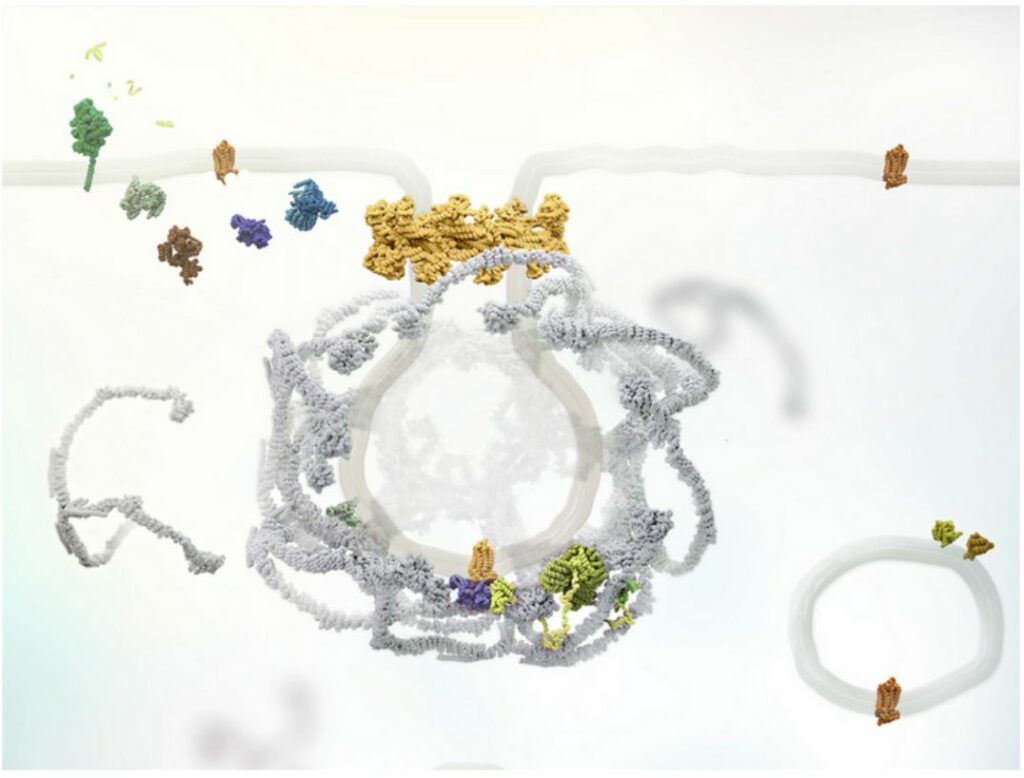Anti-Nausea Drug Offers New Hope for Lasting Chronic Pain Relief
A recent study conducted by researchers at NYU College of Dentistry’s Pain Research Center has revealed a groundbreaking approach to providing long-lasting pain relief. By modifying the chemical properties of an anti-nausea medication, the researchers were able to facilitate its penetration into the interior compartments of cells, ultimately resulting in pain relief.
Published in the prestigious journal Proceedings of the National Academy of Sciences (PNAS), this study sheds light on the intricate process of pain signaling within cells, emphasizing the importance of developing drugs that can effectively target receptors located inside cells.
G protein-coupled receptors (GPCRs), a diverse group of proteins that regulate numerous physiological processes in the body, represent a key target for approximately one-third of clinically utilized drugs. Among these receptors, a specific subset plays a significant role in pain modulation, including the neurokinin-1 (NK1) receptor, which responds to substance P—a neuropeptide responsible for transmitting pain signals.
Various FDA-approved drugs that specifically target the NK1 receptor have been successfully employed in the prevention of nausea and vomiting induced by chemotherapy or surgery. Previously, scientists had high hopes that targeting the NK1 receptor could also prove effective in pain management. Unfortunately, drugs aimed at this receptor failed to control pain in clinical trials conducted during the 1990s and early 2000s.
One possible explanation for the limited efficacy of NK1 receptor-targeting drugs in pain relief is that most of these medications primarily act by blocking surface receptors. However, researchers at NYU’s Pain Research Center have made a significant discovery, demonstrating that GPCRs transmit pain signals not from the cell surface, but from specialized compartments inside the cell known as endosomes.
“Sustained signaling in endosomes is necessary for the hyperexcitability of pain-sensing neurons involved in chronic pain,” adds senior author Nigel Bunnett. “As a result, treating pain may require the development of drugs that penetrate cells, are retained in endosomes, and disrupt signaling inside the cell.”
In the current study published, the team investigated the efficacy of two drugs, aprepitant and netupitant, both of which are NK1 receptor antagonists commonly used to prevent nausea and vomiting. While studying NK1 receptors in the laboratory has its advantages, such as the availability of clinically approved drugs targeting this receptor, it also poses challenges due to significant differences between the receptor in mice and humans. To address this issue, the scientists genetically modified mice to express the human NK1 receptor.

Previously, Bunnett and colleagues had demonstrated that encapsulating aprepitant in nanoparticles enabled targeted delivery to endosomes, thereby blocking pain. However, in this study, aprepitant only briefly disrupted endosomal signaling in cellular experiments and provided temporary pain relief in mice.
On the other hand, modifying the second drug, netupitant, showed much greater promise. The researchers altered the chemical properties of netupitant to enhance its ability to penetrate a cell’s lipid membrane. They also modified the charge of the molecule in an acidic environment, ensuring that once the drug entered an acidic endosome, it would remain trapped and accumulate inside.
These modifications enabled the modified netupitant to easily penetrate cells, reach the endosomes, and effectively block signaling of the NK1 receptor within the endosomes. This prolonged the drug’s effect in cellular experiments. Additionally, the altered netupitant exhibited a more potent and long-lasting analgesic effect in mice compared to both aprepitant and the regular form of netupitant.
In a separate trial, scientists conducted an investigation involving mice that possessed an alternative variant of the NK1 receptor on the external surface of their cells, as opposed to the interior. Remarkably, these mice demonstrated a greater level of pain resistance compared to the mice harboring human NK1 receptors within their cells. This finding emphasizes the crucial role of endosomes in pain signaling and underscores the necessity for treatments capable of effectively penetrating cells.
The researchers are currently engaged in ongoing investigations and additional animal studies aimed at devising novel pain therapies that target G protein-coupled receptors (GPCRs) within endosomes.
“Although we focused on the neurokinin-1 receptor, our findings are likely applicable to many G-protein coupled receptors because many of them show sustained signaling within cells, and therefore require drugs that can enter cells and block the receptors in endosomes,” adds Bunnett.
Source:10.1073/pnas.2220979120
Image Credit: Getty
